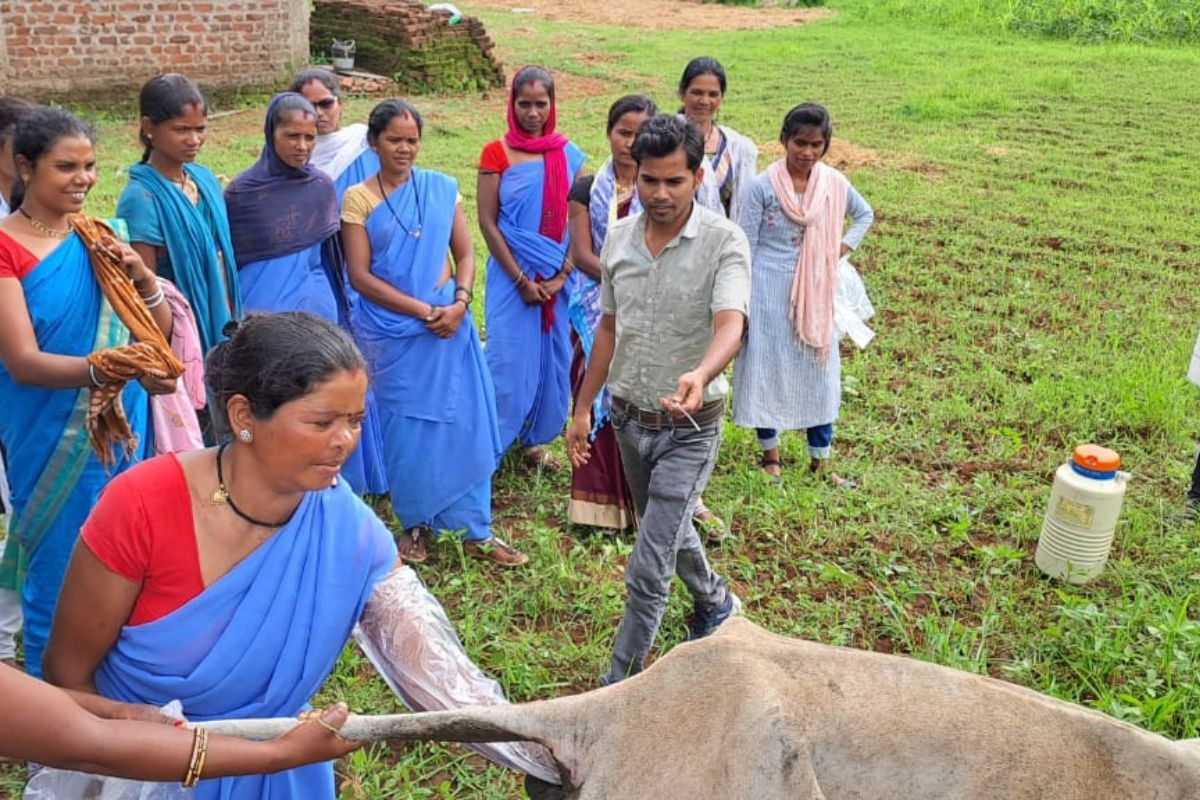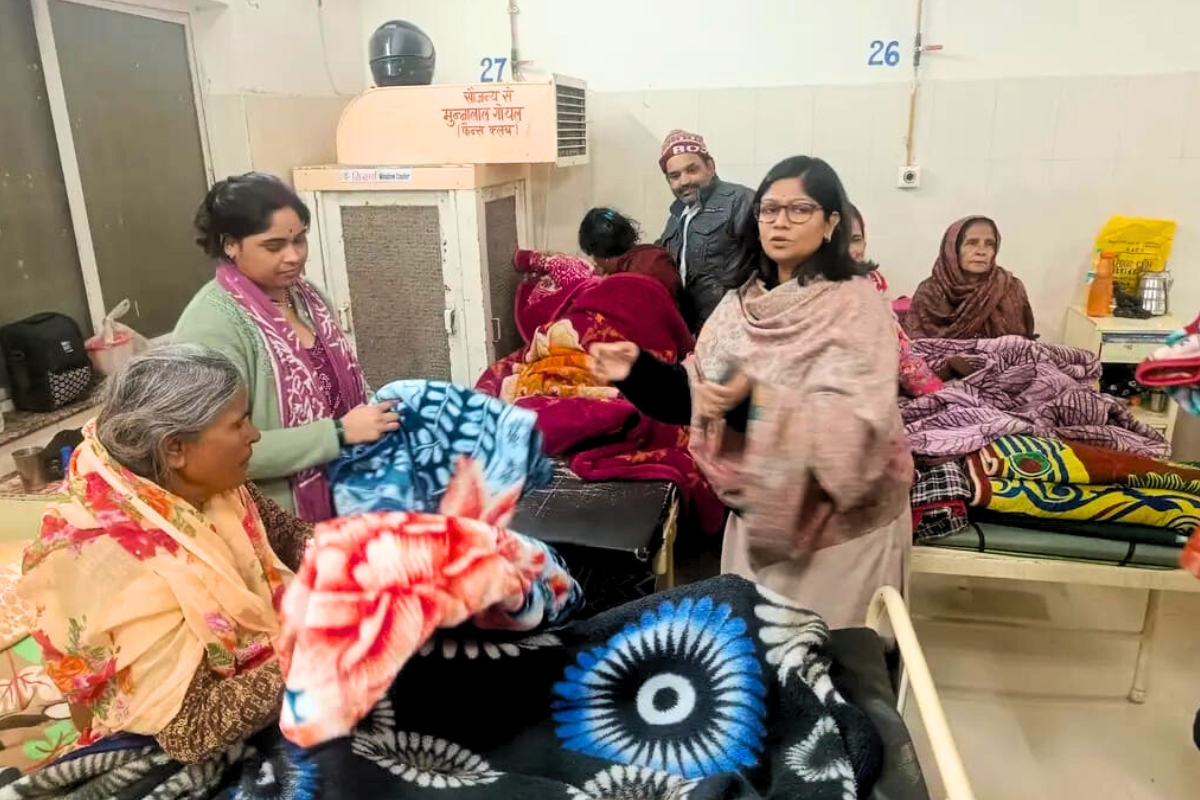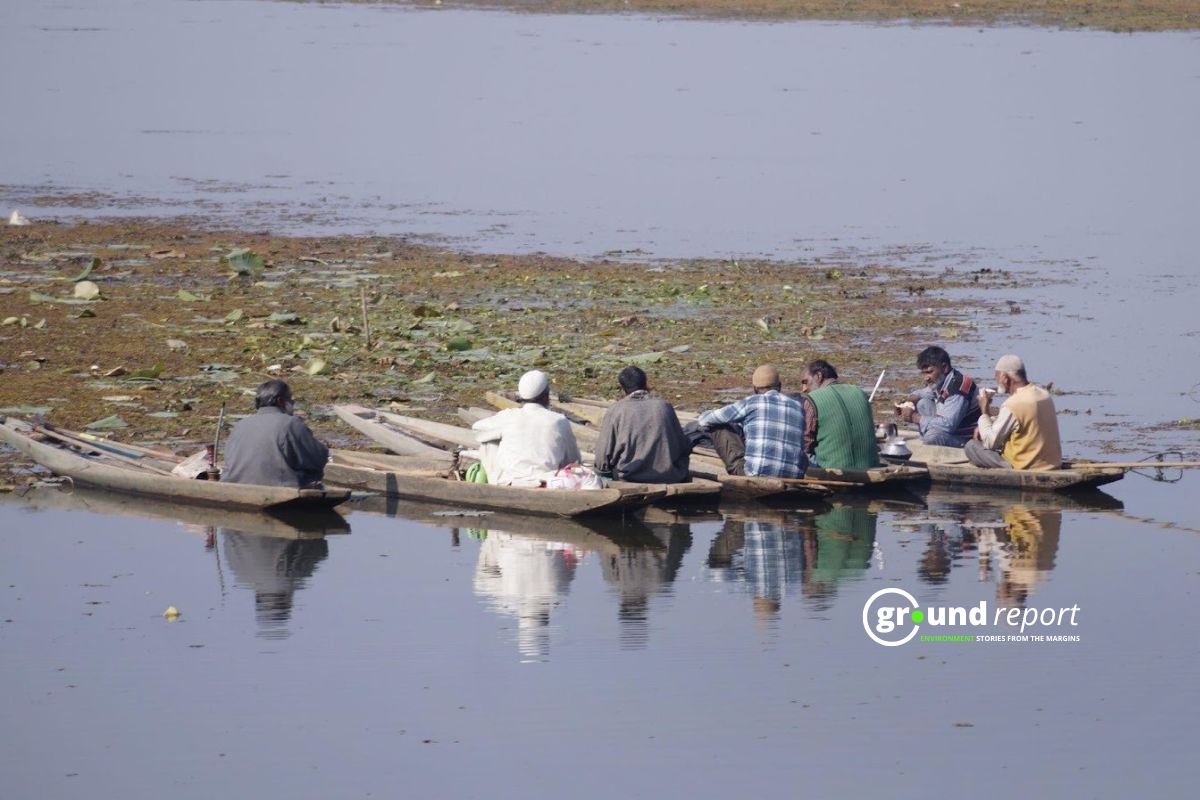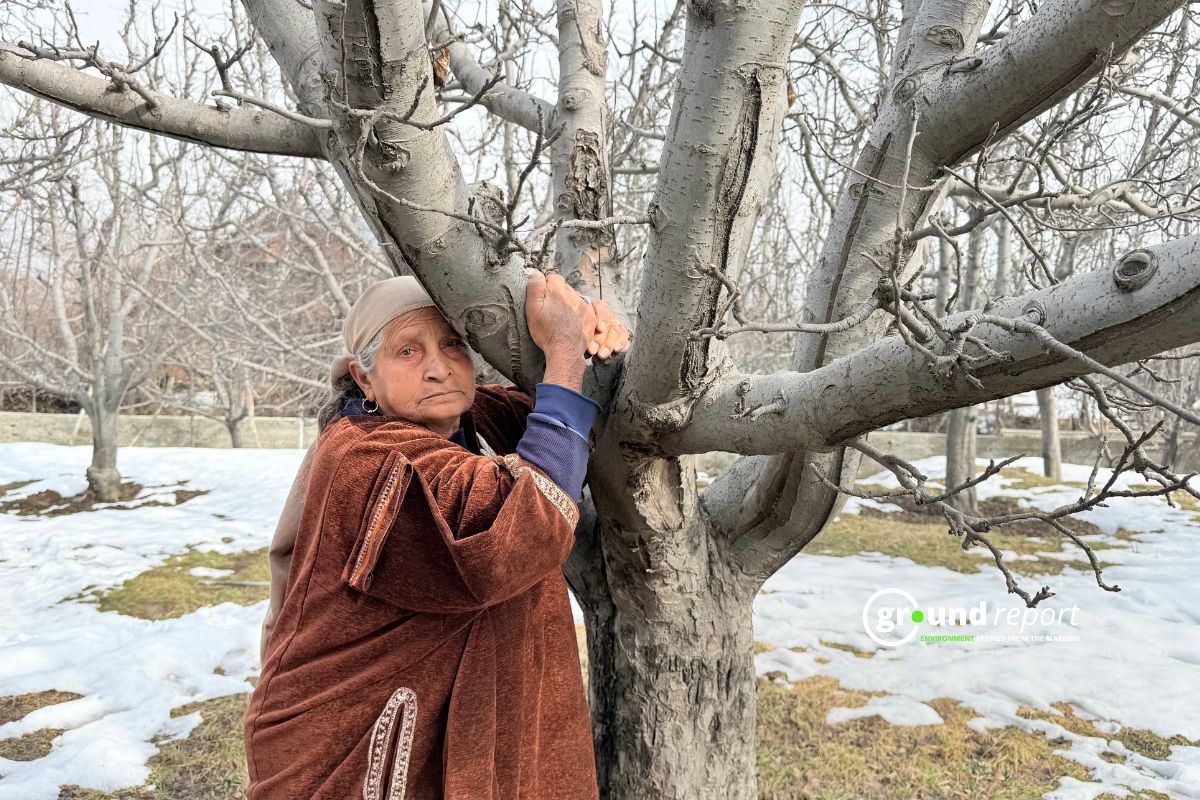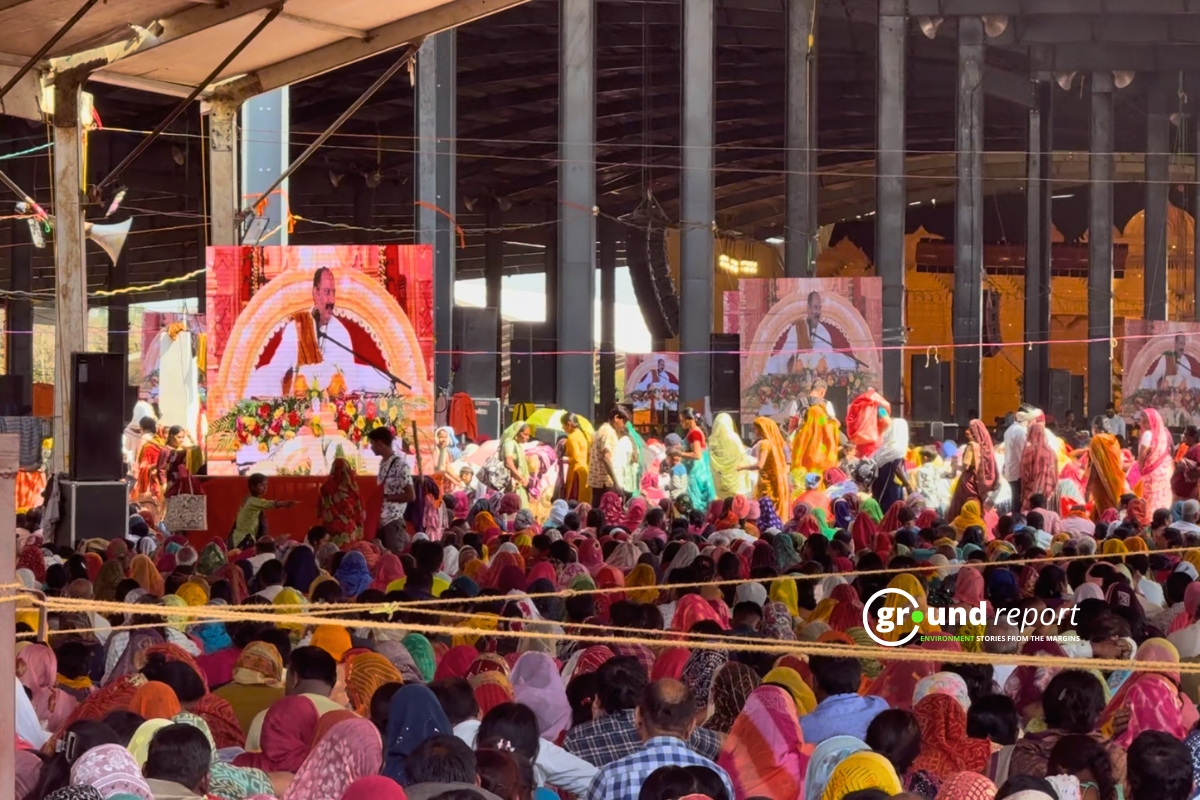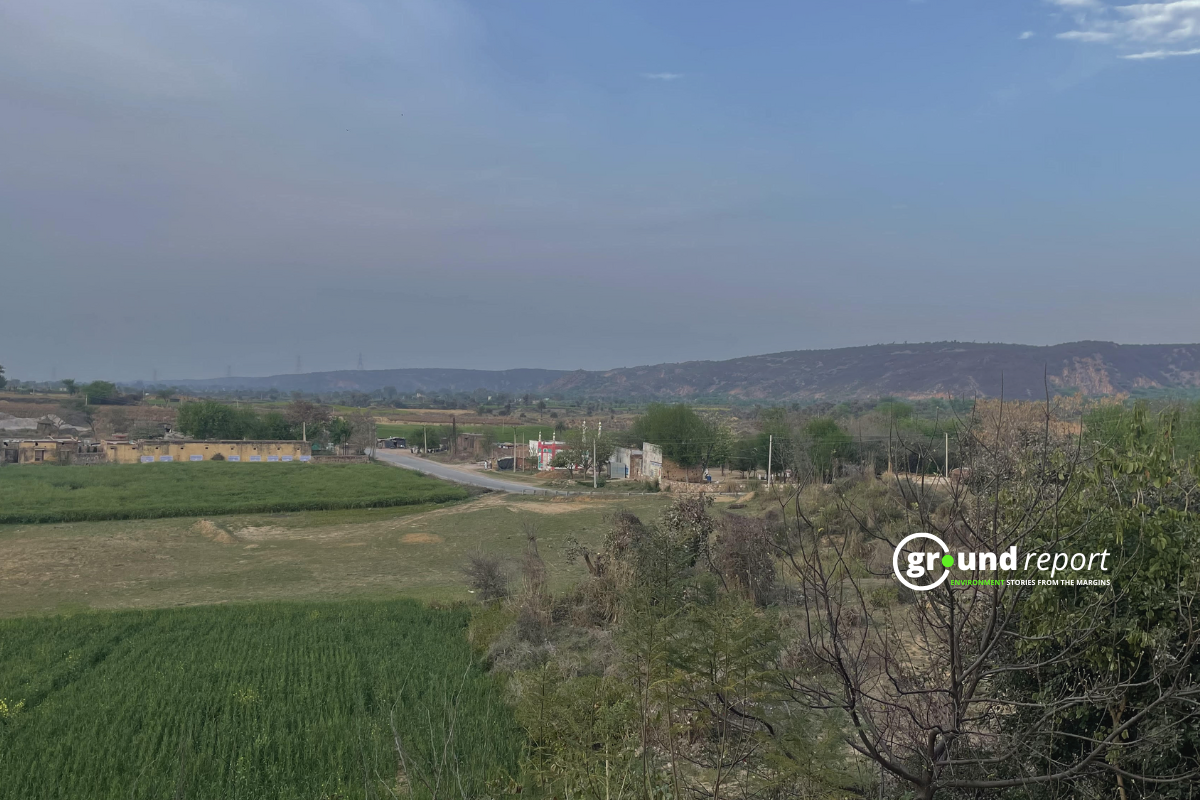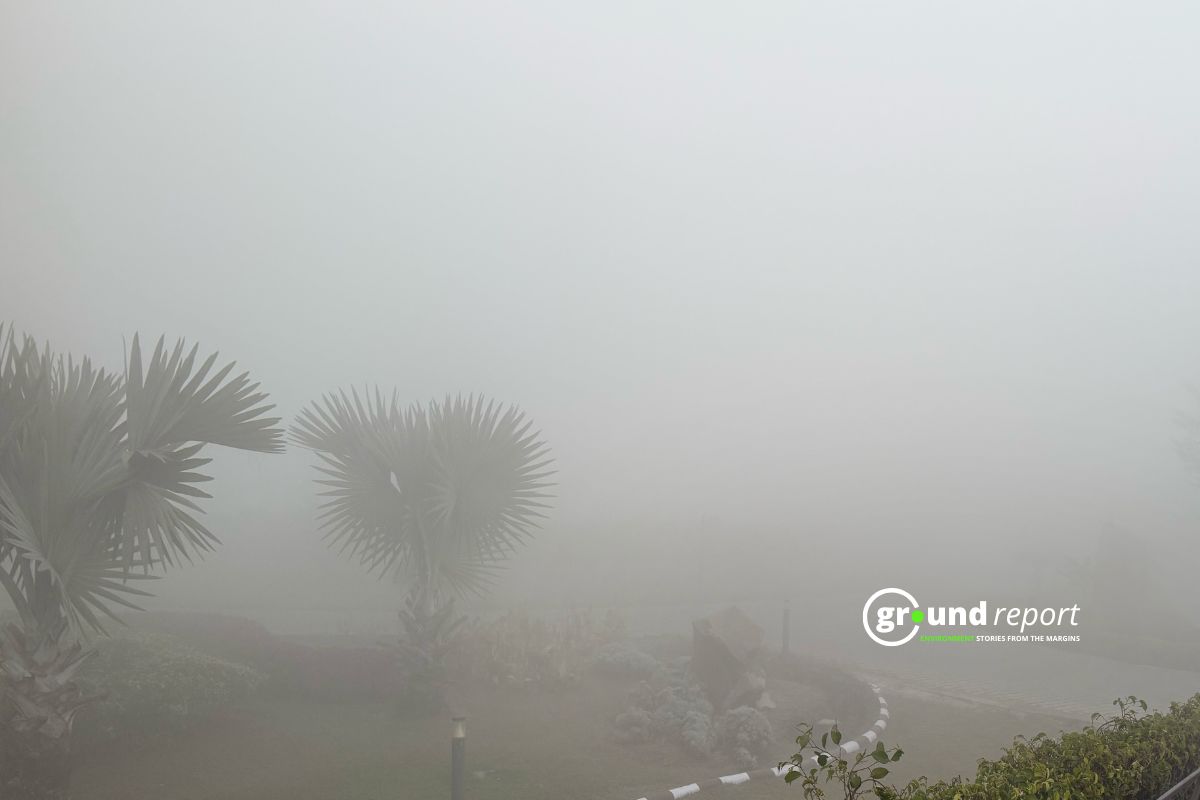Switch to Hindi | Often, when animals fall sick, the cattle owners abandon them. But the Pashu Sakhis of Mandla district of Madhya Pradesh are finding a solution to this problem and a new meaning to their lives by taking care of the animals of the village.
India ranks first in milk production today, supplying 25 per cent of the world’s milk requirement.
According to the 2019 census, there are a total of 19.2 crore cattle in India. Out of which 1.88 crore are in Madhya Pradesh. Often, when these animals fall ill, the cattle owners leave them to wander.
But the Pashu Sakhis (animal friends) of Mandla district of Madhya Pradesh are finding a solution to this problem and new meaning in their lives by taking care of the animals of the village.
Many women like Sukhmania have gained self-respect and confidence that they too can do something better by stepping out of their households and becoming Pashu Sakhi. Sukhmania and Urmila are two such women who not only treat animals but also bring extra income to the family.
Who are Pashu Sakhis?
To limit the problems related to animal health, an organization named WOTR (Watershed Organization Trust) in Madhya Pradesh has experimented in the Mandla district.
WOTR has trained 46 Pashu Sakhis in 52 villages of Mandla. These Pashu Sakhis go to the animal keepers like dairy farmers in the village and take responsibility for the vaccination, treatment, and health of the animals.
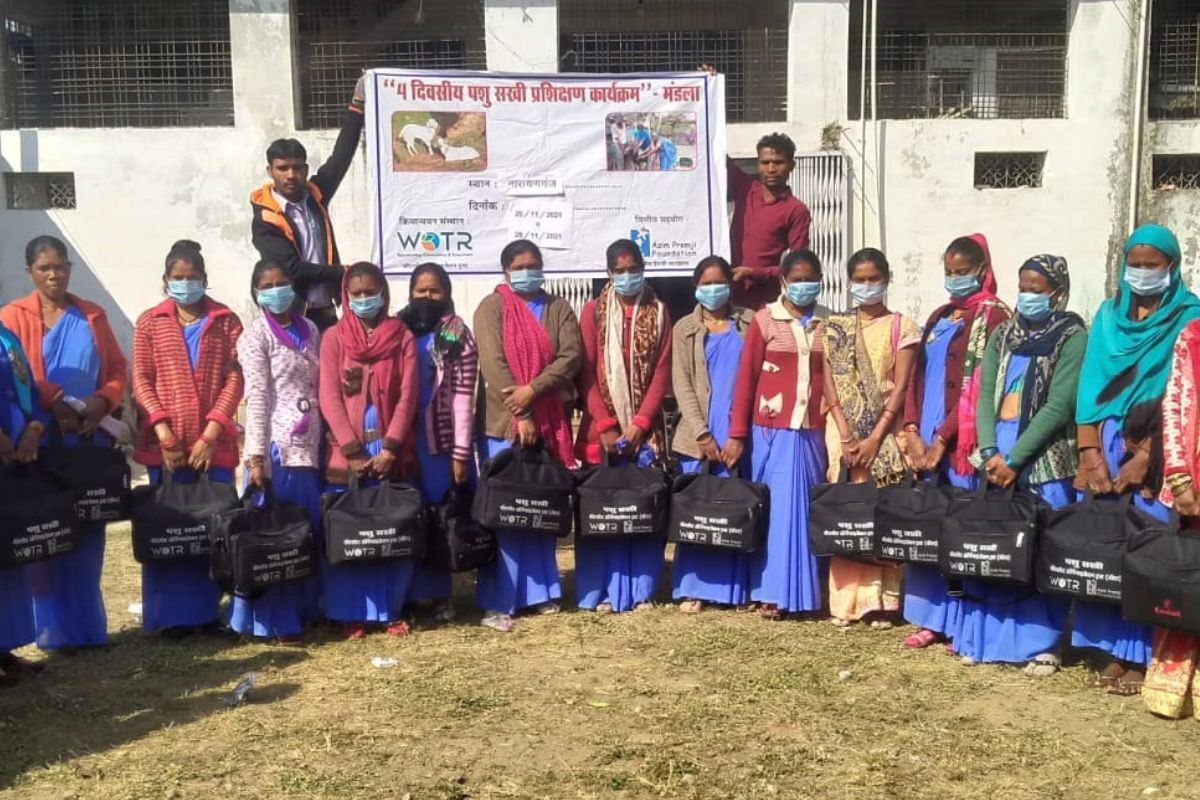
Sukhmania Marko of Lohari village in Mandla says that she is not very educated. She thought that she would not be able to do anything better in her life and would remain confined to the four walls of the house. But 3 years ago she participated in the training of Pashu Sakhi conducted by WOTR and became one. While sharing her experiences as a Pashu Sakhi, Sukamania excitedly told Ground Report,
“Pashu Sakhi training has completely changed my life. Earlier, I used to think that due to less education, we would not get any work. But after the training, today I take care of animals; I can even get milk from cows and buffaloes. Apart from this, I also went to Dhar to train other women. After becoming a Pashu Sakhi, now I feel like a free bird.”
Urmila Bhavediya of Payali village of Niwas block of Mandla has also been working as a Pashu Sakhi for the last three years. Urmila says that she has a big family. Her family includes her husband, mother-in-law, father-in-law, brother-in-law, and children. She has found an option of income as a Pashu Sakhi.
She vaccinates and treats animals, which gives her a decent income. Urmila gets Rs 2 for one vaccination and also gets incentives from the government for FMD (foot and mouth disease) vaccination. Urmila says that she usually earns a monthly income of Rs 1500-2000.
How does society treat them?
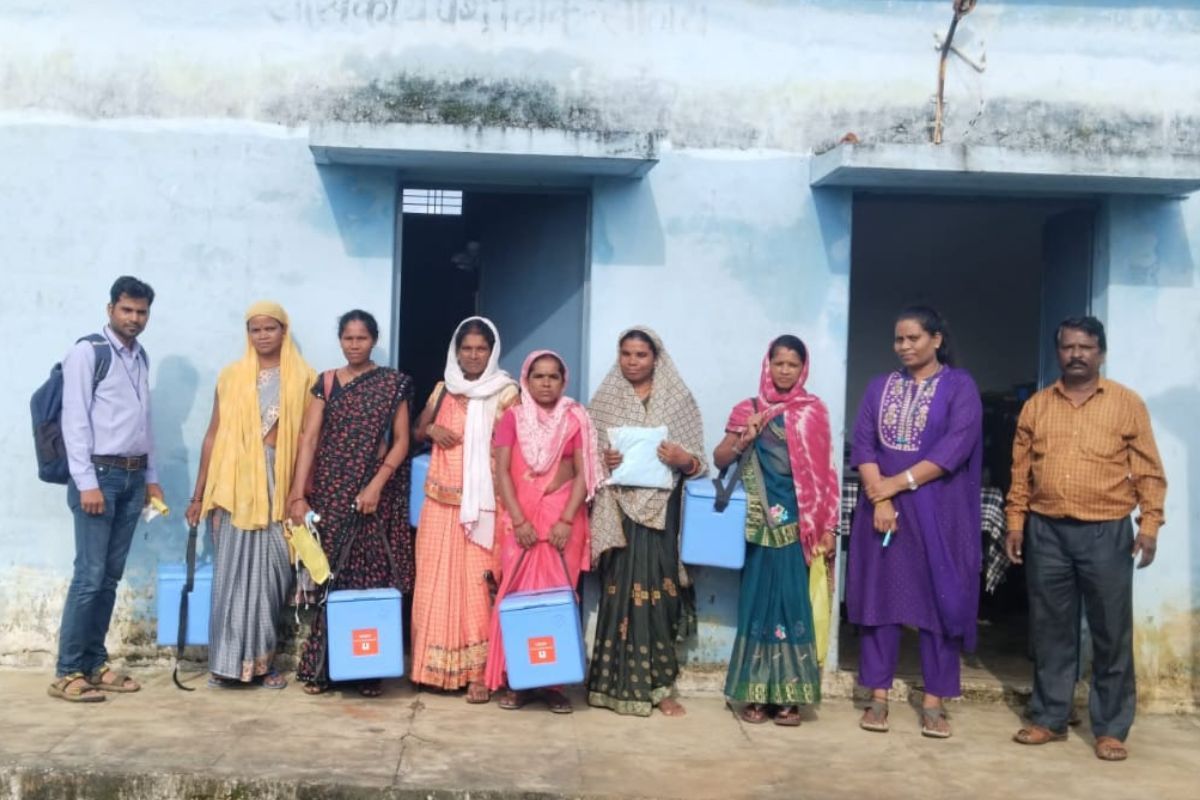
There have been many challenges in the journey of Pashu Sakhis. At the beginning of this project, the villagers were hesitant to get their animals treated by women. Sharing her initial experience, Urmila says,
“In the beginning, the villagers were hesitant to get their animals treated by us. They were doubtful whether a woman would be able to treat their animal properly or not. But with time our acceptance has increased. Today many villagers themselves come to us with their problems.”
52 Pashu Sakhis in Mandla and Dhar
Ground Report spoke to WOTR Regional Manager Akhilesh Pandey. Akhilesh said that this project of WOTR is being run with the support of the Azim Premji Foundation. In this, his team gives training to women.
While selecting Pashu Sakhis, Akhilesh’s team takes care of some basic things like these women should have general experience of animal husbandry, and they should be educated at least up to 8th standard. The reason for being 8th pass is that these women can easily read and understand the information written on the back of the medicines. Akhilesh says that,
“Today 46 Pashu Sakhis in Mandla and 8 in Dhar district have been trained, and are working.”
WOTR’s team gives 5 days of training to these Pashu Sakhis. In this, they are explained about various diseases, vaccination, treatment, and various necessary conditions for the animal. Even after this, Pashu Sakhis are prohibited from treating large animals in the first 6 months.
Once the training team of WOTR is fully convinced, only then Pashu Sakhis are allowed to treat large animals. After the first training, 3 days of training sessions are organized every 6 months, and the performance of Pashu Sakhis is also assessed.
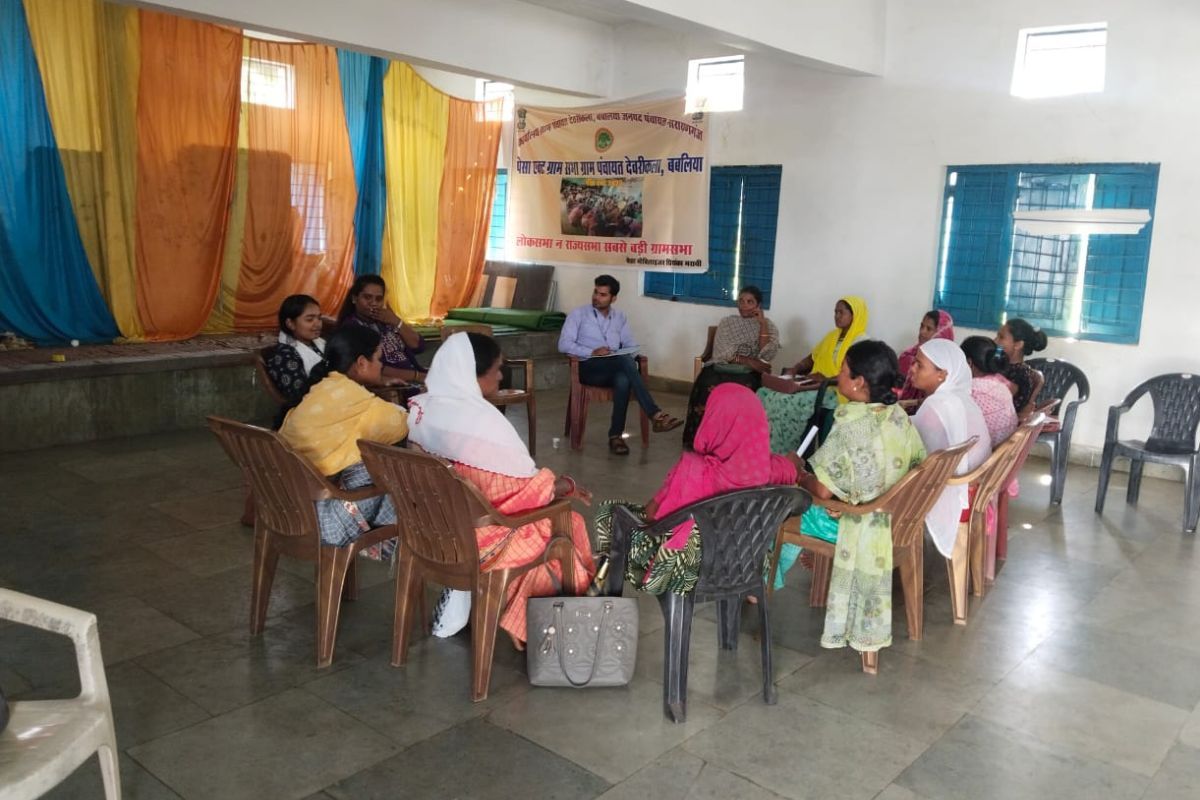
Apart from this, the Pashu Sakhis are guided in approaching any complex case. They should not treat the animal directly. Instead, they are instructed to inform the Livestock Manager of WOTR or the Government Veterinary Doctor. Whoever is nearest among them reaches for the treatment of the animal.
Akhilesh says that in the last three years, better coordination has been established between Pashu Sakhis and the administration. Now Pashu Sakhis directly get vaccines and medicines from the government and contact them in case of any difficulty. Many times, the Government Veterinary Doctor themself take the help of Pashu Sakhis and ensure normal treatment.
Supporting veterinary hospitals
Dr. Anjali Singh Marawi of the veterinary hospital of Babliya Gram Panchayat of Narayanganj block of Mandla told Ground Report,
“Earlier there used to be limited staff in the Gram Panchayat. There were not enough Gau-sevaks for medical care of animals. Anjali herself did not have any assistants. Due to this, the health care of all the animals in the village could not be ensured. But for the last 3 years, she has been getting full help from Pashu Sakhis.”
Anjali informed us that in the last three years, the entire vaccination of FMD, HS BQ (Hemorrhagic Septicemia and Black Quarter) and Brucella has been done by Pashu Sakhis. Out of these, Brucella vaccination has been done by Pashu Sakhis alone, and for FMD, HS BQ vaccination, they had formed groups of 2-3 Pashu Sakhis who together completed this vaccination. Out of these, Pashu Sakhis also get an honorarium from the government for vaccination of FMD and Brucella. Giving an example of the capability of Pashu Sakhis, Dr. Anjali tells that,
“Many times Pashu Sakhis come to us with their cases, on which we give them suggestions and successful treatment is possible. Just 6 months ago, a case of dystocia came to me in the evening from Banaar village. It was a very challenging case in which the fetus of a goat had died and the goat was not able to deliver it. For this, we have to remove the fetus manually. I explained the procedure to Pashu Sakhi and she followed the instructions and performed the operation successfully.”
Improving conditions of animals
Mahendra Kumar Mahawar, a resident of Rajasthan, works as a livestock manager for WOTR in Mandla. Mahendra has trained Urmila, Sukamaniya, and many other Pashu Sakhis of the area. Mahendra says that today Pashu Sakhis go to the houses of cattle keepers and build sheds for their animals. They get the cattle sheds (the place where cows etc. live) plastered with lime.
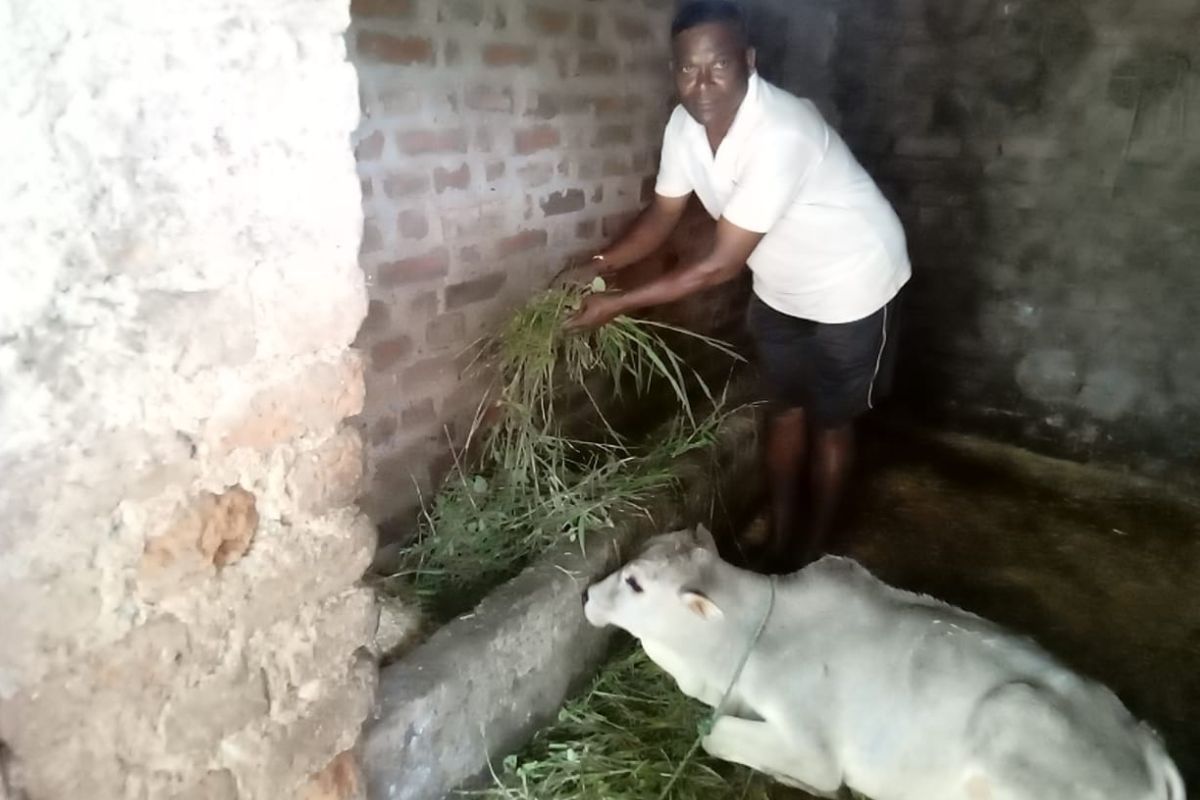
Pashu Sakhis teach cattle keepers to prepare a solution of tobacco water and apply it on the cows’ bodies to remove Kilni (a tick insect which sticks to the animal’s skin and sucks blood). They also regularly monitor all these activities.
However, the attitude of the villagers towards Pashu Sakhis was not always positive. Initially, the villagers were hesitant to get their animals treated by the women. Apart from this, the blame for any negligence during treatment was put on the Pashu Sakhis. Mentioning one such incident, Mahendra says,
“Once in Simaria village of Narayanganj, someone gave the wrong medicine to a goat, after which the goat died, and the entire blame was put on Pashu Sakhi Shashi Dhumketi. After this incident, Shashi was very disappointed. When we investigated the matter, we found that it was not Shashi’s fault. Today, the same Pashu Sakhi, Shashi, has built 15 goat sheds in her village.”
Mahendra further added,
“Pashu Sakhis go from village to village and regularly check the health of animals, tag them and collect data. As a result, in the last 3 years, not a single animal has died due to communicable diseases. Even when there was an outbreak of the Lumpy virus in the whole country, not a single cow in Mandla fell victim to it because their immunity was already better.”
Building trust in the community
Gyan Singh Kulaste of Jewara village of Mandla has 4 cows. Gyan Singh has been getting his cows treated by Pashu Sakhis for the last three years. Gyan Singh says that he got treatment done by Pashu Sakhis and it was successful, this is how the trust kept on building later. Sharing his recent experiences, Gyan Singh said that,
“Recently our cow had many wounds. Pashu Sakhis vaccinated our cow applied ointment and bandage continuously, and our cow’s wounds healed. However, the scars of these wounds have not gone away yet. Before, we had to wait for a long time for doctors. Now, the treatment of our cows has become easy.”
According to WOTR, the impact of Pashu Sakhis in Mandla’s villages has been remarkable. 2,061 livestock farmers in Mandla have benefited from their expertise and 1,207 livestock farmers are receiving treatment for their livestock.
Under the entire project, 2,336 animals have received the necessary care. Mahendra says that after this program, the number of goats in these villages has more than doubled, and the number of animal deaths due to disease has now become almost zero per cent.
Under A-HELP, the government provides train Pashu Sakhis
The availability of medical facilities for cattle across the country is a matter of concern. According to the data of March 31, 2023, there are 69,202 veterinary units of different types across the country. Out of these, Madhya Pradesh has 2,712 veterinary units and a total of 3039 registered veterinarians.
The simple math of these figures is that in Madhya Pradesh, 6,192 cattle are dependent on one doctor, which is a huge responsibility.
Regarding the mobile veterinary unit, a document of the Madhya Pradesh government has also admitted that there is one veterinary unit for 50,000 animals in the state, which is insufficient.
It has been said in this document that there are at least 1000 calls related to veterinary medicine throughout the day, which remain unanswered.
However, the Department of Animal Husbandry and Dairying (DAHD) has started a scheme called “A-HELP” (Accredited Agent for Health and Extension of Livestock Production).
In this, an MoU has been signed between the Department of Animal Husbandry and Dairying (DAHD) and the National Rural Livelihood Mission (NRLM) under the Government of India. This scheme has been started in many other states of the country including Madhya Pradesh.
Under this scheme, rural women are given training so that they can control animal diseases, do artificial insemination etc. and find support for their livelihood.
To understand the work of A-Help in Madhya Pradesh, Ground Report spoke to Dr Swati Shrivastava, Additional Deputy Director, Animal Husbandry and Dairy Directorate, Madhya Pradesh. Dr. Swati said that,
“The training of Pashu Sakhis as A-Help is still going on in Madhya Pradesh. Our target is to train 1300 Pashu Sakhis, out of which 997 Pashu Sakhis have been trained, which is the highest in the country. State Rural Livelihood Mission (SRLM) sends Pashu Sakhis to us, for whom we provide 16 days of training. For this, master trainers come from the National Dairy Development Board, Anand, whose curriculum is prescribed.”
Mahendra told that WOTR’s project in Mandla will continue for 3 more years. Meanwhile, WOTR’s team is thinking of preparing a business model for Pashu Sakhis, so that these women can stand on their feet in a better way.
However, even after these government and non-government efforts, there is a huge gap between animals and their medical availability in India, which needs a concrete action plan and incentives to bridge.
Support us to keep independent environmental journalism alive in India.
Keep Reading
Khadi Haat village’s power-free wastewater treatment solution and more
How much wastewater is being reused in Delhi?
Follow Ground Report on X, Instagram and Facebook for environmental and underreported stories from the margins. Give us feedback on our email id greport2018@gmail.com.
Don’t forget to Subscribe to our weekly newsletter, Join our community on WhatsApp, and Follow our YouTube Channel for video stories.
